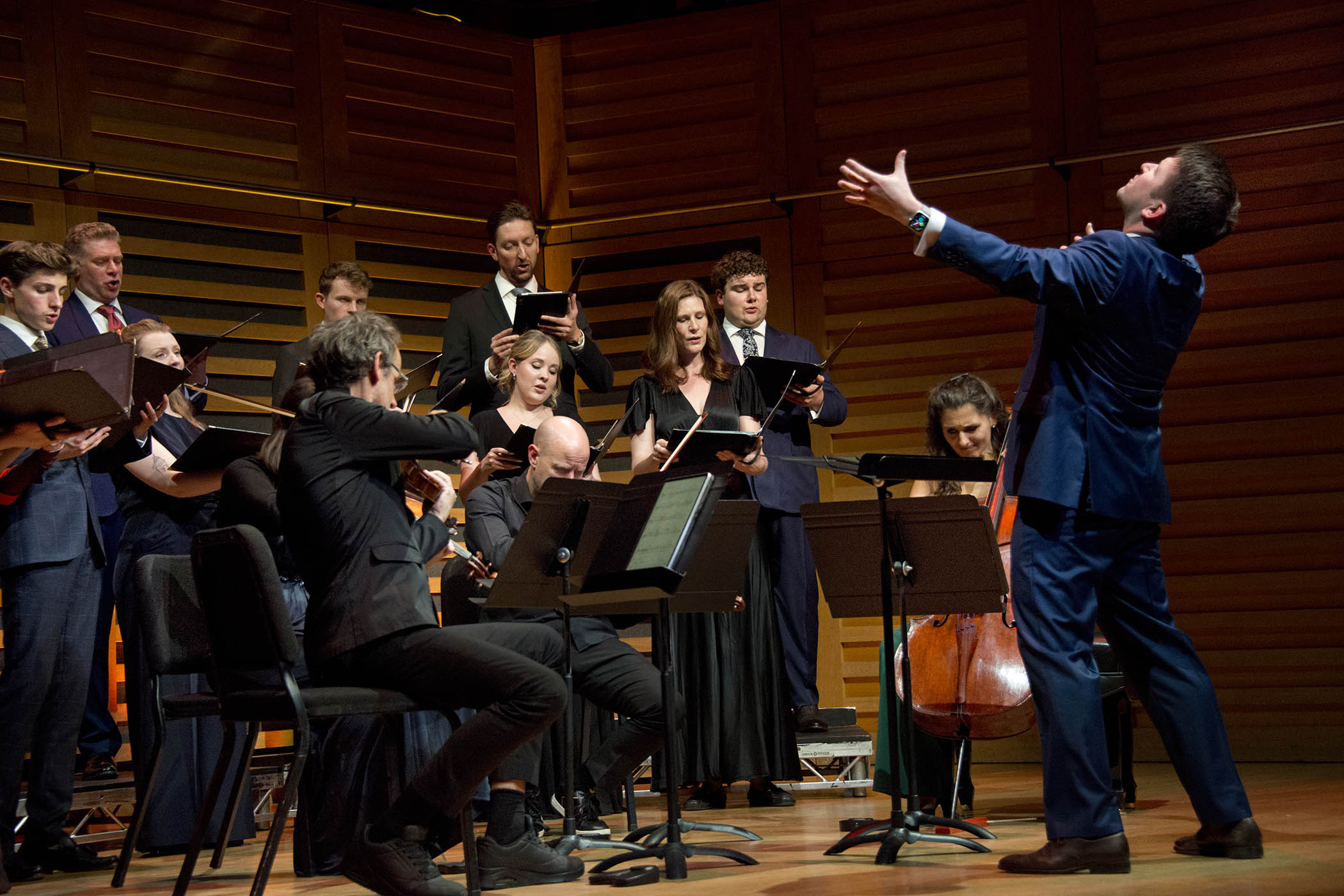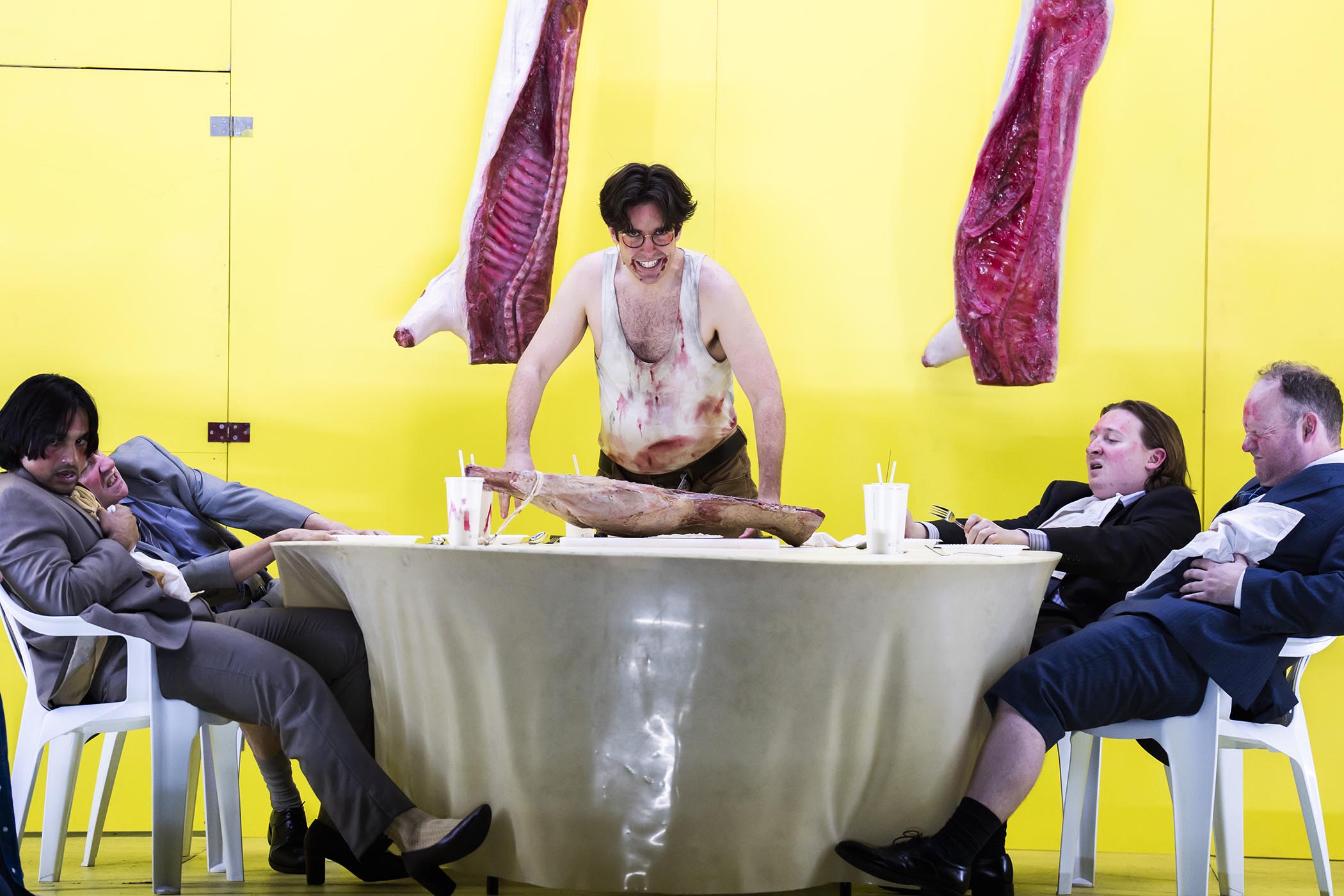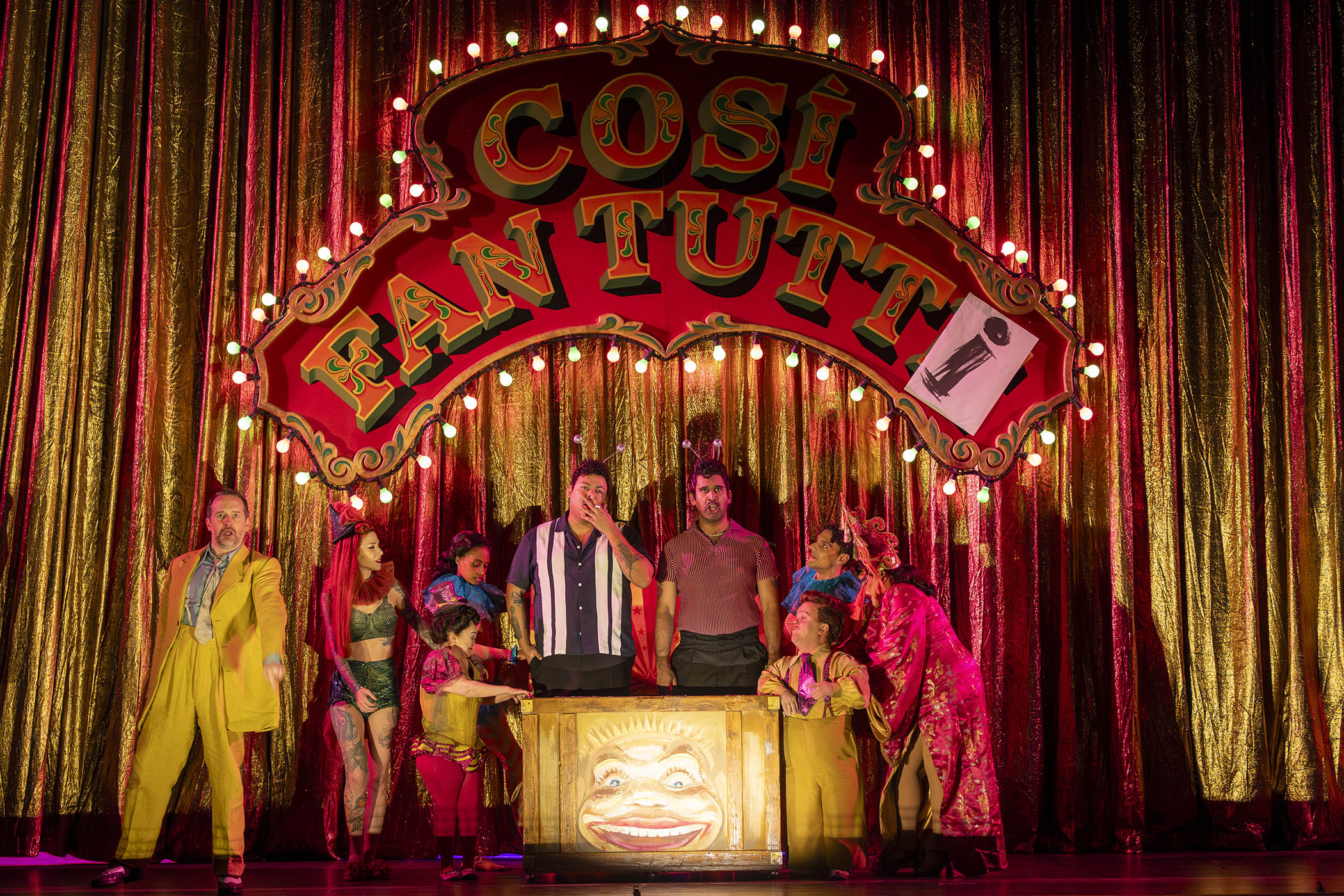Gone for ever, never to be seen or heard again, the humble passenger pigeon was once so numerous the sky would darken as their flocks flew over. Their numbers swelled to an estimated 5 billion in the 19th century, before the hunting rifle claimed them all for the table – all bar one, named Martha, who died a lonely death in a Cincinnati zoo in 1914.
Martha’s story, and the fate of other species that humankind has wiped away, is the inspiration behind The Lost Birds, “an extinction elegy” by the American composer Christopher Tin. It was commissioned by the hugely popular vocal group Voces8 after a crowdfunding effort during lockdown. It sets texts that reflect on both the beauty and the melancholy of the natural world by poets Emily Dickinson, Christina Rossetti, Edna St Vincent Millay and Sara Teasdale.
Joined by the Carducci Quartet and pianist Christopher Glynn, Voces8 – here expanded to 16 singers – performed this multi-movement piece with surgical precision, their voices perfectly balanced, though the words were sometimes lost. Tin is a composer of film, TV and video game music, and takes a cinematic approach in this piece. The themes sweep and soar but too often offer only a comforting soup of sentimental melody and cloying harmony, rather than any hint of the anger that the subject should provoke – even when the focus shifts away from birds towards our own possible extinction. It received a rapturous reception, but left me unmoved.
Earlier, conductor Barnaby Smith had guided his excellent singers through some altogether more muscular, unaccompanied compositions by two other American composers, Caroline Shaw and Eric Whitacre, both immaculately presented, particularly Shaw’s vivid setting of words from Psalm 84: “The sparrow found a house and the swallow her nest where she may lay her young.” Text by Teasdale appeared again in Give Me Your Stars, a setting by the 27-year-old British composer Lucy Walker, commissioned for the group’s 20th anniversary.
Christopher Tin is a composer of film, TV and video game music and takes a cinematic approach in this “extinction elegy”
Christopher Tin is a composer of film, TV and video game music and takes a cinematic approach in this “extinction elegy”
This was writing of great beauty and sophistication, each syllable carefully considered, each nuance given its own identity. There were no grand, empty gestures here, just clean, precise word-painting, coupled with a pleasing warmth and humanity.
More birds fluttered into a superb recital given by the baritone Florian Boesch and pianist Malcolm Martineau at Wigmore Hall last week – and not always benignly. Some provoked a forlorn lover in Robert Schumann’s Liederkreis, others perched briefly in a tiny song by Franz Liszt and one transformed into a feathery messenger of death in a dark tale set by Alexander Zemlinsky.
It was the lesser-known Zemlinsky songs that proved the most striking in this carefully curated programme: lyrical works that enabled Boesch to best display his formidable storytelling skills. His style is conversational: he confides in his audience, pacing the stage, gesturing, grimacing, smiling. He twists his hands in anguish, spreads his arms in joy, his face glares in anger or crumples in sorrow. The voice has an easy, warm authority, frightening in rage yet disarming in moments of reflection when he floats the ghostliest pianissimo out across the auditorium.
In Zemlinsky’s setting of Paul Heyse’s poem Schlaf nur ein (Go to sleep), a lover is tormented in a dream by the woman who has rejected him. Boesch used his soft, high register to great effect here, in what so easily could have been a gross parody of vocal femininity. But that same pianissimo was as cold as ice in Vöglein Schwermut (Little bird of melancholy), when Death sends a blackbird out into the world to be his midnight emissary.
In the opening Liszt set, Boesch and Martineau left us in no doubt about the bitterness of the rejected lover in Vergiftet sind meine Lieder (My songs are filled with poison). Yet they soothed and consoled us in a luminous reading of the composer’s Gebet (Prayer), with Martineau showing the utmost control and delicacy. In Schumann’s Liederkreis, Boesch’s anguish reflected every line of Heinrich Heine’s highly perfumed text, as the dejected poet wrestles with rejection.
Not even the sweet sadness of the final Mit Myrten und Rosen (With myrtle and roses) could quite erase the naked anger in Berg’ und Burgen (Mountains and castles), with Martineau thundering at the piano as Boesch raged at the resemblance of the Rhine to a two-faced lover, smooth on the surface, yet hiding “death and night within”.
Newsletters
Choose the newsletters you want to receive
View more
For information about how The Observer protects your data, read our Privacy Policy
Photograph by Sophia Evans for The Observer


